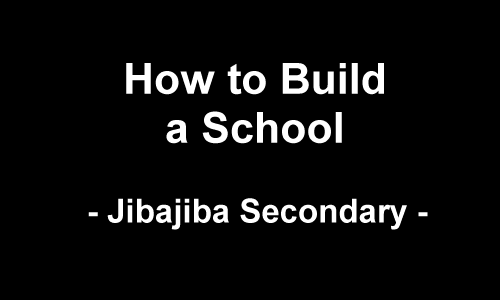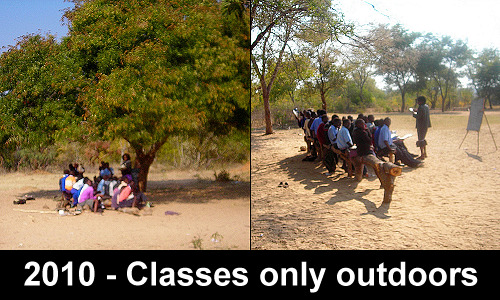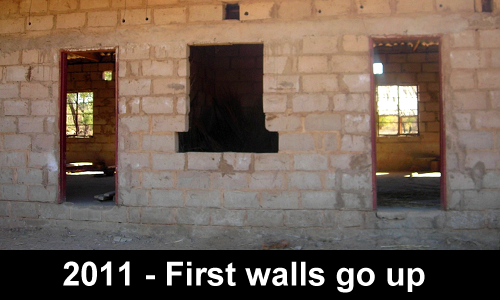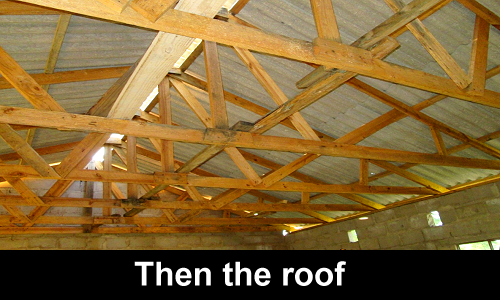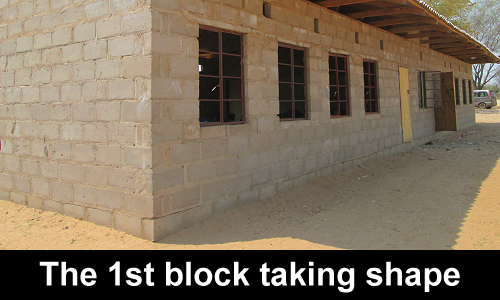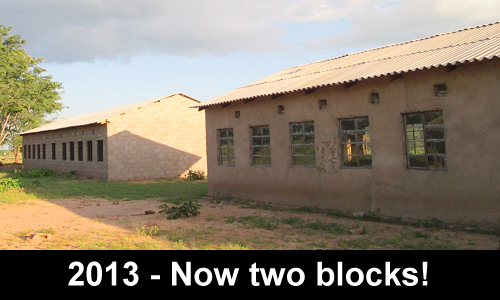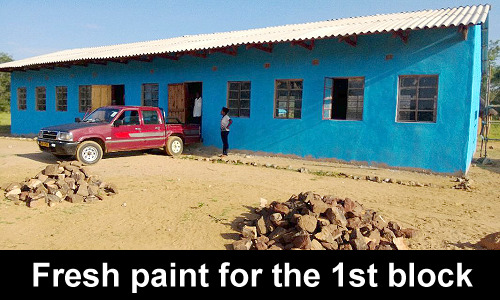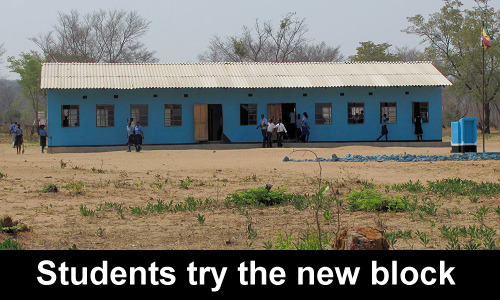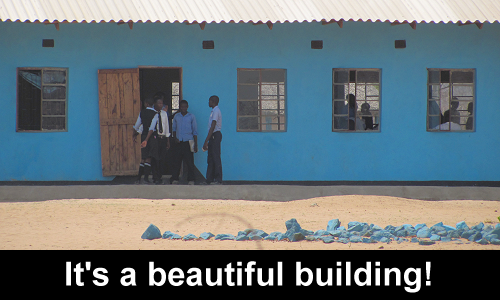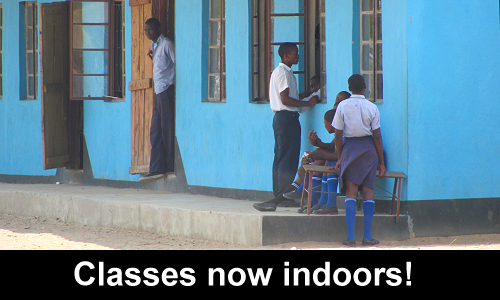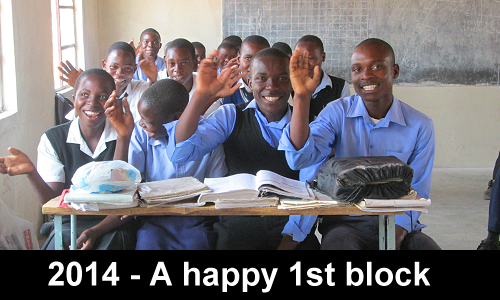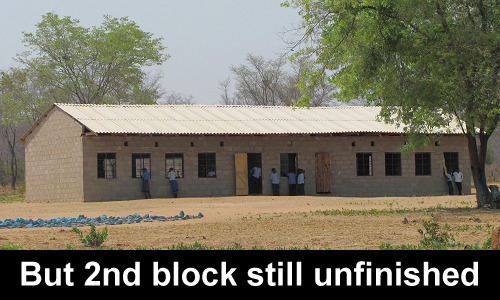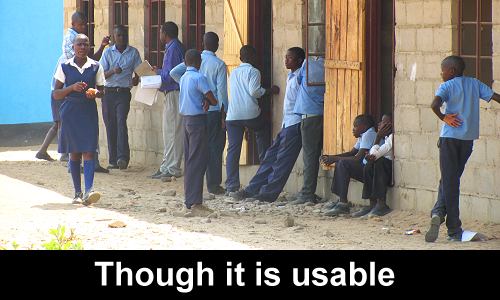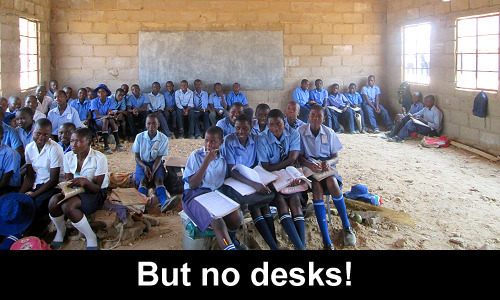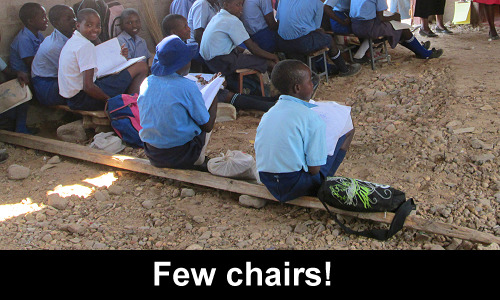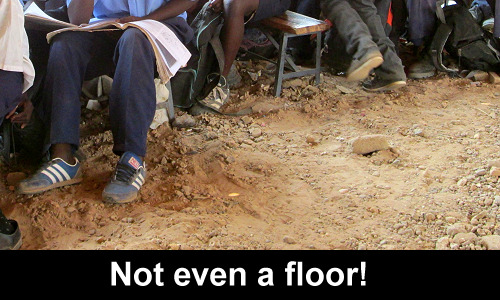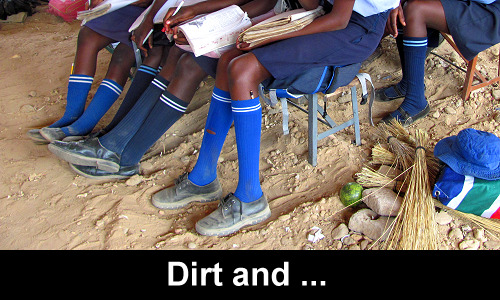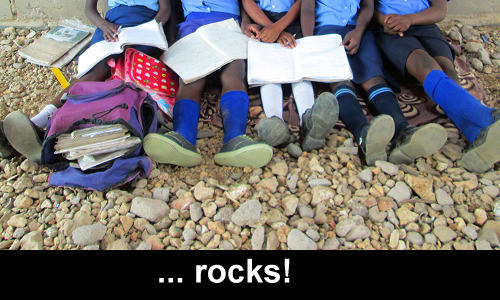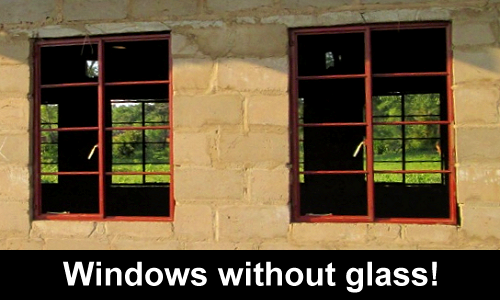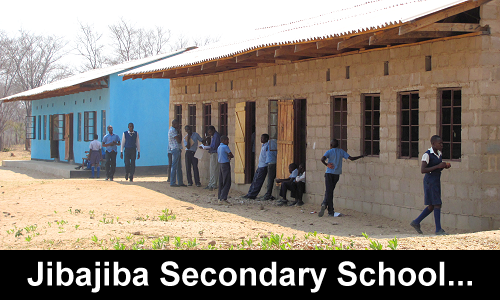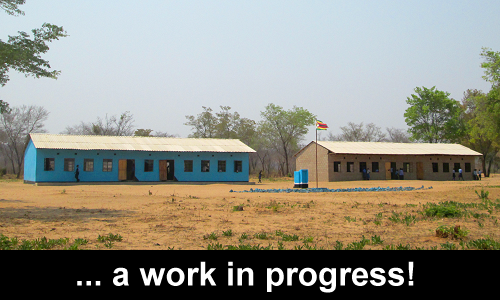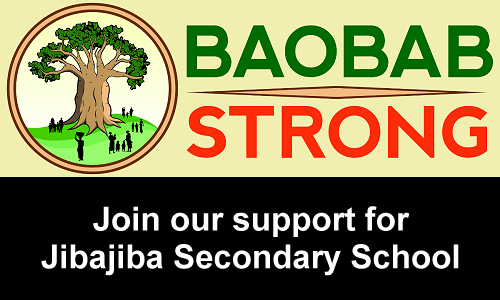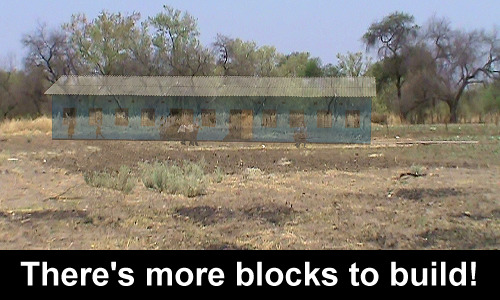History
In 2009, members of the rural Jibajiba community in Zimbabwe came together to improve their lives. Local families pooled resources, namely corn and millet, to be sold. They raised a few thousand dollars for their community. This was an enormous accomplishment, considering locals live on an estimated $1 per day.
The money raised was used to begin construction of a badly needed secondary school, so local children could finally attend school past age 12. As construction began, the first Jibajiba Secondary School students were taught by their dedicated teacher beneath a tree on the school grounds.
Meanwhile, the resourceful community also reached out to Dutch philanthropist Henk Bennen, or “Mr. Henk”, who was known to support grassroots education projects in Africa. Mr. Henk, inspired by the Jibajiba community, made substantial financial and physical contributions to rapidly advance construction of Jibajiba Secondary School. The combined efforts of Mr. Henk, the Jibajiba community, and outside donations resulted in four classrooms in two buildings, teacher’s quarters, and a set of pit toilets for the school.
While not yet complete, the school currently has 250 enthusiastic students who walk from miles around to attend. In only a few years, Jibajiba Secondary School has produced good results with students achieving success at levels equivalent to their peers in more established schools. Though much work is left to finish the school, with the help of BAOBAB STRONG and its donors, the outlook for Jibajiba students and the community is improving.
Goals & Projects for 2015-2017
Finish the 2nd classroom building: As of late 2014, two basic buildings, called “school blocks”, have been constructed, each containing 2 classrooms. Both buildings are currently in use. While one building is essentially complete, the second is not, and needs the following:
Cement floor: The incomplete building has a dirt floor with rocks to keep the dust down while class is in session.
Windows: Classrooms lack glass panes in the windows.
Desks and chairs: Currently, students sit on the rocks/dirt floor of the classrooms and write on their laps.
Additional Improvements to the Jibajiba Secondary complex:
3rd and 4th buildings: The four classrooms accommodating 250 students have reached capacity. Construction of two additional classroom buildings is planned for the growing student population.
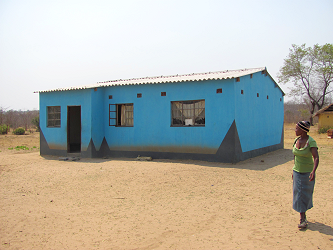
Teachers accommodation: Due to the remote location of Jibajiba and the lack of proper roads and transportation, teachers live on the school property in small cottages. The growing student population requires more housing for additional teachers.
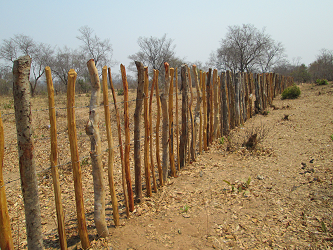
Fence:To keep animals, such as goats and donkeys, from disturbing the property, a fence is being built.
Solar power: The rural community of Jibajiba is not electrified. The school has no power for lights, computers, etc. In fact, none of the students has ever seen a computer! We plan to install solar panels for electricity.
Water project: A new borehole (well) has just been drilled on the school grounds to supply clean water to students for drinking, sanitation, and establishing a vegetable garden. The required pump, tank, and power generator was also installed.
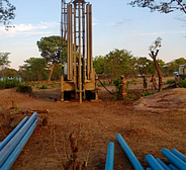
Check out more info on this Water Project.
From the Ground Up!
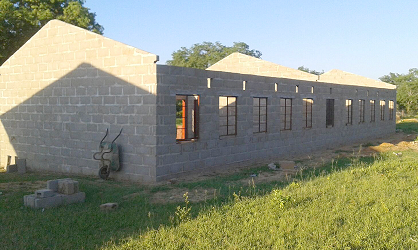
Four walls, yet no roof! This is the new school “block” under construction at Jibajiba Secondary School in Zimbabwe.
The secondary school complex currently has 2 functioning school blocks, each containing 2 classrooms. But this new rural school is now serving over 250 students!
The current 4 classrooms cannot properly handle all the students. Consequently, many classes are being taught outside, on the ground, even during harsh weather. This third school block will help alleviate this problem. It will also fulfill the minimum requirement of 3 school blocks to secure full accreditation and support, critical for students advancing to higher educational levels.
Now if this school block only had a roof! Your help is urgently needed.
Statements
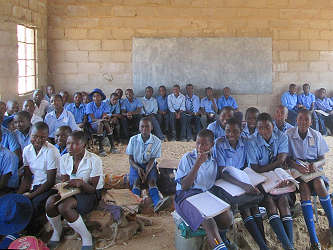
Natalia N. – age 13 female
I learn at school which is not completely built. It has less furniture. We usually sit on the floor with rough and sharp stones. We wish to have electricity, smooth floor, science lab and computers and more accommodation.
Bothwell M. – age 14 male
I wish my school to have enough floored classrooms, painted and roofed well. I also wish to have laboratories, computers and electricity. Teachers are not enough and I wish them to increase. There are few subjects at my school . . . We have few chairs which are for the teachers only and desk.
Sekukuhle N. – age 15 female
In my school we have problem of shortage of furniture and we not have enough classrooms. We sit down onto the floor and uniforms became dirty when we dismissed. We also have a problem of availability of electricity to read during the night to become educated.
Waison S. – age 15 male
There is lack of accommodation both in classrooms and in cottages (the houses of teachers). This is a special case which affects us in our education because teachers not be enough leading to few subjects to be studied or learned.
Sandra P. – age 15 female
At my school there is shortage of accommodation and we also need more blocks. Now we have two blocks. There is no furniture so we scatter on an unplastered floor which has sandy soil and gravel. We learn without furniture because of the importance of Education. My dream is to be a Doctor from Jibajiba Secondary. I wish our school will improve.
Waison S. – age 15 male
Our school is not protected with fence and animals near to school during the rainy season they use the floor in front of classroom as shelter. They pass out their waste and the floor become dirty and it now the duty of students to sweep while the time is going to start their lesson. Sometimes these livestock they can break the windows and pollute the school ground.
Primrose G. – age 16 female
In my school, there are many pupils in which you can find 70-80 children in the same class. There is inadequate learning materials e.g. furniture and textbooks. Other children sit down on the floor learning.
Simosenkosi N. – age 20 female
There are not enough textbook in my school so pupils share one textbook while writing notes or reading and also the furniture are not enough for pupils to sit.
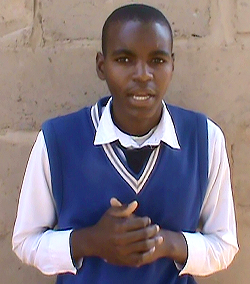
I’m a student at Jibajiba Secondary School. The school has come a long way in only a few years. But I wish our school could develop into something, which is more modern, to better serve our educational needs. We need more textbooks for the students to learn, and never have enough school supplies. There is little space for everyone, without enough desks or chairs. There is no electric power, so no electric lights to read by, and no way to learn about computers or use other modern things. We are currently facing a lot of challenges in learning. Much more help is needed.
Even though my school is still new and does not yet have everything needed, I am very thankful for the education Jibajiba Secondary has thus been able to provide. This education will improve my future in so many ways!
I thank everyone who is helping us!
Terrence M.



